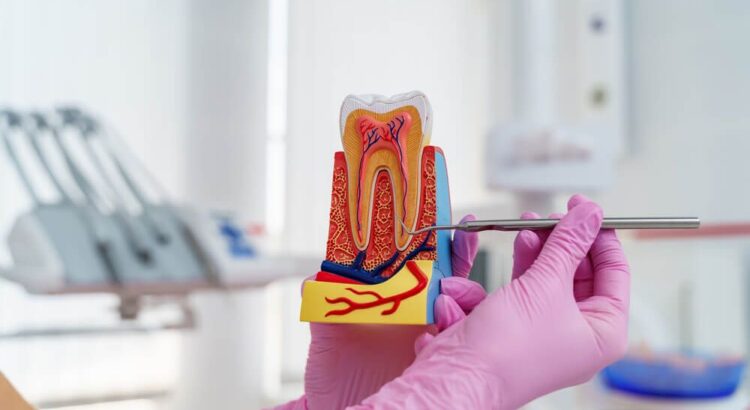Pregnancy is a beautiful phase in every woman’s life. But nothing comes without a price. You are likely to experience oral problems 3 times more while pregnant, especially tooth decay. Mild cavities can be easily restored with dental fillings, but what about extensive tooth decay? What if your dentist in Fairfield, ME, recommends you to get root canal treatment?
Read this informative blog to know when is the right time to get a root canal during pregnancy, if is it safe, and what are the consequences of avoiding root canal treatment during pregnancy.
What is root canal therapy?
Root canal therapy is a dental non-surgical procedure that involves treating an extensively damaged or diseased tooth. It involves the removal of the infected pulp (the innermost core of your teeth that consists of connective tissues, blood vessels, and nerves) tissues and replacing it with a biocompatible material like gutta-percha. This is finally restored with a permanent prosthesis like a dental crown.
Is root canal treatment safe during pregnancy?
Pregnancy comes with its highs and lows. It is a rollercoaster ride that may result in compromised oral health. Poor eating habits, sugar cravings, hormonal changes, and morning sickness can wreak havoc on your oral health. Tooth decay is 2 to 3 times more likely to develop during pregnancy. Your dentist may recommend root canal treatment for severely damaged teeth.
It is essential to remember that root canal treatment is extremely safe during pregnancy, provided it is performed during the safest trimester, and by a skilled dental professional.
When is the right time to get root canal treatment during pregnancy?
The right time to get root canal treatment while pregnant is the second trimester. The first trimester is usually not recommended since there is rapid fetal development, and during the third trimester, you may feel less comfortable lying back in a dental chair.
Are dental X-rays safe during pregnancy?
According to the American Pregnancy Association, it is better to avoid unnecessary dental x-rays. However, if your dentist deems it necessary before a root canal procedure, they do so by taking into all the safety precautions like using a lead shield or apron. This limits the radiation exposure and ensures no harm to the developing fetus.
Takeaway
Root canal treatments are less painful and help restore your oral form, function, and aesthetics. Being pregnant doesn’t necessarily mean you need to avoid the procedure, because avoiding getting the procedure may deteriorate your oral health further.

